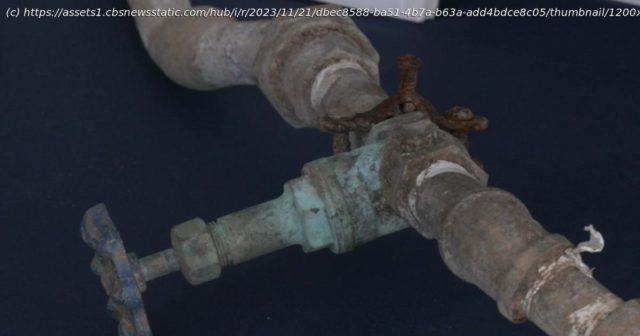The agency said tighter standards would improve IQ scores in children and reduce high blood pressure and heart disease in adults.
Most U.S. cities would have to replace within 10 years under strict new rules proposed by the Environmental Protection Agency as the Biden administration moves to reduce lead in drinking water and prevent public health crises like the ones in Flint, Michigan and Washington, D.C.
Millions of people consume drinking water from lead pipes and the agency said tighter standards would improve IQ scores in children and reduce high blood pressure and heart disease in adults. It is the strongest overhaul of lead rules in more than three decades, and will cost billions of dollars. Pulling it off will require overcoming enormous practical and financial obstacles.
“These improvements ensure that in a not too distant future, there will never be another city and another child poisoned by their pipes,” said Mona Hanna-Attisha, a pediatrician and clean water advocate.
In April, an found found there are more than 9 million lead service lines – known to be a “significant source” of lead contamination – used to carry drinking water to homes throughout the nation.
The Biden administration has previously said it wants all of the nation’s roughly 9 million lead pipes to be removed, and rapidly. Lead pipes connect water mains in the street to homes and are typically the biggest source of lead in drinking water. They are most common in older, industrial parts of the country.
Lead crises have hit poorer, majority-Black cities like Flint especially hard, propelling the risks of lead in drinking water into the national consciousness. Their impact reaches beyond public health. After the crises, tap water use declined nationally, especially among Black and Hispanic people. The Biden administration says investment is vital to fix this injustice and ensure everyone has safe, lead-free drinking water.
“We’re trying to right a longstanding wrong here,” said Radhika Fox, head of the EPA Office of Water. “We’re bending the arc towards equity and justice on this legacy issue.”
The proposal, called the lead and copper rule improvements, would for the first time require utilities to replace lead pipes even if their lead levels aren’t too high.
Home
United States
USA — Science EPA proposes rule to replace all lead water pipes in U.S. within...






